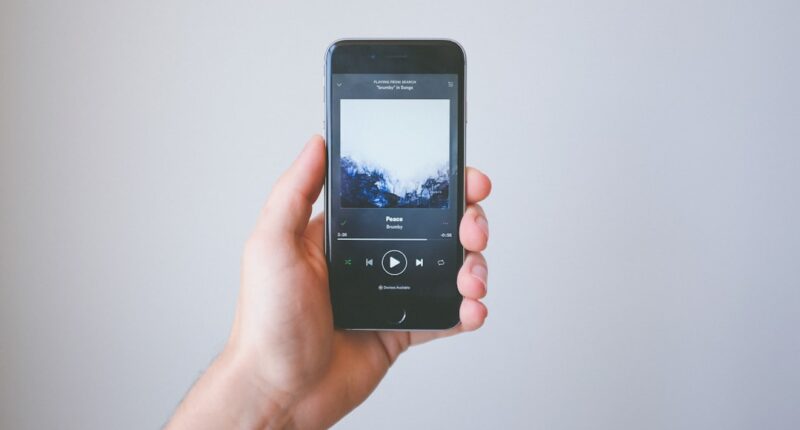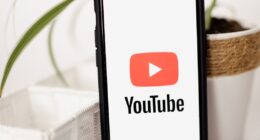There has always been power in music marketing campaigns to draw in listeners and generate excitement about a new album or artist. The marketing techniques used to promote music have changed along with the music industry, from the days of radio and print ads to the digital era of social media and streaming services. Artists and record labels need to connect with their target audience and stand out from the crowd more than ever in today’s fiercely competitive music landscape. This is where the importance of music marketing campaigns comes into play. In addition to creating excitement and anticipation, a well-run campaign can boost album sales, fan engagement, and ultimately catapult an artist to unprecedented levels of success.
Key Takeaways
- Music marketing campaigns can be incredibly powerful in reaching and engaging audiences.
- A music industry database can be a valuable tool in creating successful campaigns.
- Innovative and authentic marketing strategies can captivate audiences and build a loyal fan base.
- Beyoncé’s surprise album drop is a prime example of a successful music marketing campaign.
- Collaborative marketing and utilizing social media and live events can also boost music marketing efforts.
A music industry database is one of the most important resources used by music marketers to develop successful campaigns. With the help of this database, which contains a wealth of data, marketers can pinpoint their target market and develop tailored advertisements that appeal to them. Information about consumer behavior and preferences can be obtained from a database used by the music industry. Along with demographic data like age, location, and gender, it can assist marketers in understanding the popular genres, artists, & songs among their target audience.
With this knowledge at hand, marketers can adjust their campaigns to make sure the right people are seeing the right message. Numerous instances of creative music marketing techniques that have enthralled audiences & made an impression have been demonstrated to us over the years. These techniques transcend conventional advertising and provide the viewer a singular, unforgettable experience that boosts engagement and fosters brand loyalty. Interactive campaigns are one such tactic. Fan interaction with the artist or brand is encouraged through these campaigns.
For instance, musicians might tease fans with sneak peeks of their next songs and invite them to vote for their favorite, or they might make interactive music videos where viewers can select from a variety of plot points or conclusions. Through audience participation in the creative process, artists generate excitement and a sense of ownership that heightens anticipation for the finished product. Another tactic that has become more & more popular recently is experience marketing.
This entails developing immersive experiences that enable a deeper level of fan-artist or brand connection. Artists could, for instance, throw pop-up stores or invitation-only listening parties where fans can interact with merchandise and hear previews of new releases. Fans who share their experiences with others not only foster a feeling of exclusivity but also produce valuable word-of-mouth marketing.
The music industry has also effectively employed guerrilla marketing, which is another cutting-edge tactic. In order to do this, unusual and frequently inexpensive methods of drawing attention and buzz are used. For instance, artists might organize unexpected performances or flash mobs in public areas, or they might make street art or graffiti to advertise their music.
In addition to producing media attention and social media buzz, these guerilla marketing techniques have the power to arouse curiosity & excitement. While attention-grabbing marketing techniques can work well, it’s crucial to keep in mind that sincerity is crucial when promoting music. Modern audiences are astute & quick to recognize when a performer or marketing campaign is not authentic. Authenticity stands out and connects with audiences in a world where consumers are inundated with commercials and promotional messages. Transparent communication is a means of achieving authenticity. By sharing their journey, challenges, & triumphs, artists and brands can foster a transparent & honest relationship with their fans.
This openness fosters trust and establishes a sincere rapport with the viewership. Having sincere conversations with supporters is also essential to preserving authenticity. On social media, artists ought to spend some time interacting with their followers, answering messages and comments, & expressing gratitude for their support. Establishing a devoted fan base is greatly aided by this personal touch.
Another crucial component of authenticity for an artist is adhering to their brand and ideals. To appeal to a larger audience or follow a particular trend, artists shouldn’t sacrifice their artistic vision or alter who they are. Since this is what first drew in their fans, they should instead continue to be true to who they are and their distinct style. Beyoncé’s 2013 surprise album release was one of the most innovative music marketing techniques in recent memory.
Fans & the industry were taken aback when Beyoncé surprised everyone by releasing her self-titled album exclusively on iTunes without any prior notice or promotion. Fans felt a sense of urgency & exclusivity as a result of this unexpected release—a calculated move. Through direct communication with her fans and a lack of build-up or anticipation for new music, Beyoncé established a direct connection with them by eschewing traditional marketing and promotion. Due to the enormous excitement and buzz this generated, the album went on to become one of the year’s best-selling records.
The popularity of Beyoncé’s unexpected album release demonstrated the value of exclusivity and surprise in music promotion. It demonstrated that, occasionally, less really is more and that, when done right, a well-executed surprise can attract more interest and excitement than months’ worth of conventional advertising. In the music business, collaborative marketing has long been standard practice.
It entails collaborating with other companies or artists to develop a campaign that benefits all parties. An artist’s reach can be increased & new opportunities for exposure can be created with collaborative marketing. Collaborations between brands & musicians are a prime example of effective joint promotion. To produce limited-edition goods, sponsorships, or endorsements, artists frequently work with brands in partnership.
In addition to giving artists new sources of income, these partnerships introduce them to listeners who might not have otherwise heard of their work. Artist collaborations are another way that collaborative marketing can manifest itself. A lot of excitement & anticipation can be generated when two or more artists collaborate to create a song or album. There’s a good chance that fans of both artists will encourage the partnership, which will boost record sales and fan interaction. It is hard to discuss music marketing without bringing up social media’s influence. Social media has completely changed the way music is marketed by enabling musicians to interact more personally with their fans.
Social media sites like Twitter, TikTok, and Instagram have developed into effective resources for music promotion. These platforms give artists the opportunity to interact with fans, share behind-the-scenes content, & show off their individuality and artistic vision. Fans may readily share and discuss their favorite music on social media, which gives artists the opportunity to cultivate a devoted following and foster a feeling of community. User-generated content also has a platform thanks to social media.
Admirers have the ability to produce original music videos, remixes, and covers & distribute them globally. In addition to promoting the artist, this user-generated content gives fans a sense of involvement & ownership. Live performances & tours continue to be essential components of music marketing, even as digital marketing has grown in significance within the music industry.
Fans can interact directly with artists at live events, making for an unforgettable and engaging experience. An artist can create excitement and buzz through live performances and tours. Record sales & fan engagement can rise in the run-up to a concert or festival performance. Also strengthening their bond with fans, live performances give performers a chance to show off their skills and stage presence.
Virtual concerts and livestreams, in addition to conventional live events, have grown in popularity recently. Performers can interact with fans who might not otherwise be able to see them live by holding these kinds of events and reaching a worldwide audience. With features like live chat and virtual meet-and-greets, virtual concerts offer an immersive and engaging experience as well. Future developments in music marketing will be shaped by the ever-evolving music industry and the emergence of new technologies and trends. Virtual reality experiences are one such trend.
Fans can experience music in a whole new way by submerging themselves in a virtual world thanks to virtual reality. Virtual reality concerts and music videos are a unique & engaging way for artists to engage with their fans. Marketing driven by AI is another trend to keep an eye on.
Large-scale data analysis & insightful insights into the preferences and behavior of consumers are possible with artificial intelligence. Because of this, advertisers are able to produce audience-relevant targeted campaigns & personalized content. One of the biggest trends in music marketing is personalization. Because there is a wealth of data at their disposal, marketers can produce content, playlists, and recommendations that are specifically tailored to each fan. In addition to improving the fan experience, this individualized approach raises engagement and loyalty. Successful music marketing campaigns can teach us many valuable lessons.
When done right, these kinds of campaigns can be very effective. The significance of collaboration and personalization, the impact of surprise and exclusivity, and the importance of authenticity are among the important lessons learned. Every music marketing campaign ought to be centered on authenticity. Contemporary audiences seek authentic connections and experiences; artists and brands that are able to provide these will have an advantage over their competitors.
Fans may get excited and anticipate something new when it’s surprising or exclusive. Artists have the ability to create excitement & hold an audience’s interest by defying expectations and taking unconventional approaches. Successful music marketing also requires teamwork and customization. Artists can increase their reach & generate new exposure opportunities by collaborating with other brands or artists.
By fostering a sense of ownership and loyalty, personalization enables artists to engage with fans on a deeper level. It’s critical for musicians & marketers to keep up with the times and adopt new tools and styles as the music business develops. Artists may create effective music marketing campaigns that connect with fans and launch their careers to new heights by knowing their audience, adhering to their brand, and providing distinctive & unforgettable experiences.
If you’re interested in exploring more about music marketing campaigns that have pushed boundaries and achieved remarkable success, you should definitely check out this article on the Music Marketing Blog. In addition to the 10 Best Music Marketing Campaigns That Broke the Mold, the blog offers a wide range of insightful content on various aspects of music marketing. From tips and strategies to case studies and industry trends, this blog is a valuable resource for anyone looking to make their mark in the music industry. So, click here to dive deeper into the world of music marketing: Music Marketing Blog.
FAQs
What is the article about?
The article is about the 10 best music marketing campaigns that were unique and innovative in breaking the mold.
What are some examples of the music marketing campaigns mentioned in the article?
Some examples of the music marketing campaigns mentioned in the article include Beyoncé’s surprise album drop, Radiohead’s pay-what-you-want release of “In Rainbows,” and Lil Nas X’s viral TikTok campaign for “Old Town Road.”
What makes these music marketing campaigns unique?
These music marketing campaigns are unique because they broke the traditional mold of how music is marketed and released. They utilized new and innovative strategies to capture the attention of audiences and create buzz around the music.
What impact did these music marketing campaigns have on the music industry?
These music marketing campaigns had a significant impact on the music industry by changing the way music is marketed and released. They showed that there are alternative ways to promote and distribute music that can be just as effective, if not more so, than traditional methods.
Can these music marketing strategies be applied to other industries?
Yes, these music marketing strategies can be applied to other industries. The key is to think outside the box and come up with unique and innovative ways to promote and distribute products or services.









